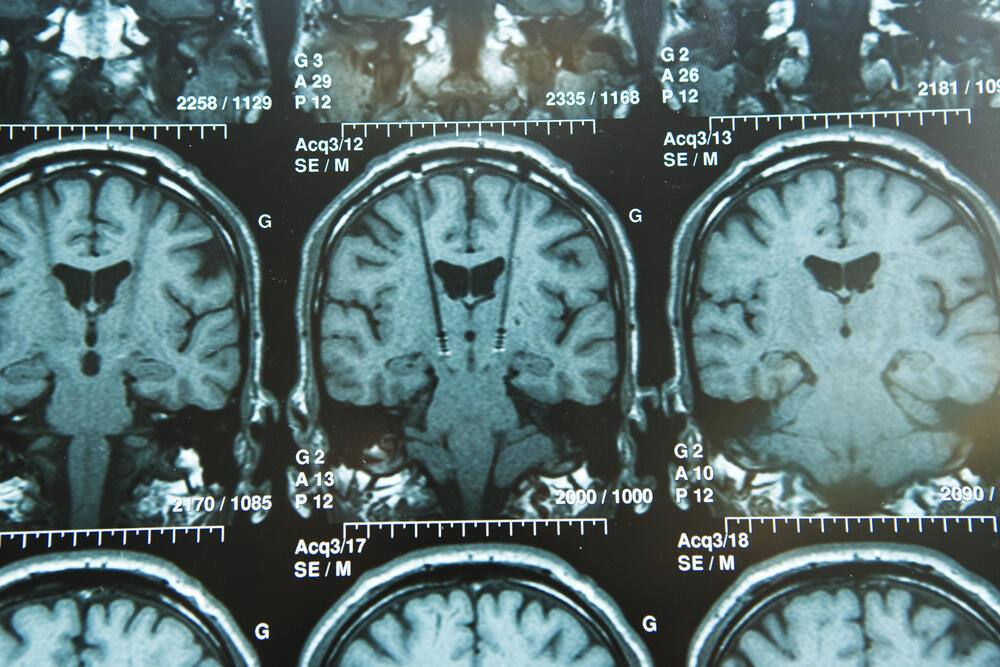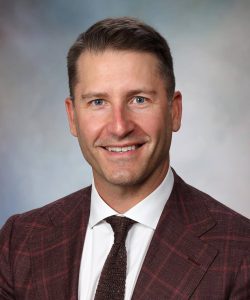-
Expert alert: Surgical approaches being studied to restore function after stroke

JACKSONVILLE, Florida — Stroke affects 15 million people worldwide every year, with most stroke-related surgery occurring during the patient's acute phase. An estimated half of those people will live with permanent or chronic disability. Researchers continue to study ways that may help patients regain function later, says Chris Fox M.D., a neurosurgeon at Mayo Clinic in Jacksonville, Florida.
A stroke happens when the blood supply to part of the brain is interrupted. An ischemic stroke, the most common type, is caused by a blocked artery in the brain. With hemorrhagic strokes, a blood vessel in the brain leaks or bursts and causes bleeding in the brain. Blockage of blood flow leads to cell death, and the longer the blockage lasts, the more brain cells are injured. When bleeding in the brain occurs, cells are injured due to increased pressure within the brain and from direct injury from the blood and its subsequent breakdown.
The majority of surgeries happen within a few hours after the stroke, when the patient is in the acute phase, Dr. Fox says. Surgery on patients with ischemic strokes focuses on restoring the blood flow to the brain. Surgery in patients with hemorrhagic stroke involves addressing the cause of the bleeding and alleviating pressure in the brain.
"The vast majority of what we can do now is either treat patients who are presenting with stroke, or do surgeries that can help prevent stroke," Dr. Fox says. "This includes surgeries like opening up a narrowed carotid artery in the neck or treating an aneurysm or other vascular malformation in the brain before it has a chance to rupture."

Depending on the location and severity of the brain damage, patients can experience changes that affect their quality of life. A stroke can result in weakness, numbness, speech changes and problems with balance, coordination and vision. Potential surgical approaches for chronic conditions after stroke are still being studied.
"Being able to reanimate the nervous system after any injury, including stroke, has been something that we have been chasing after for quite some time." Dr. Fox says. "It hasn't happened yet. Hopefully, it's coming."
Here are some of the approaches being studied:
Deep brain stimulation: Deep brain stimulation involves implanting electrodes within areas of the brain. The electrodes produce impulses that affect brain activity. The person receives a pacemaker-like device under the skin in the upper chest which controls the amount of stimulation. The impulses also affect cells and chemicals in the brain that cause medical conditions.
Deep brain stimulation is used to treat several conditions including Parkinson's disease and epilepsy. It is not currently available as a mainstream treatment for people who have had strokes but research is underway to see if it will be an option in the future, Dr. Fox says.
Brain-computer interfaces: These technologies, which can be placed on top of the brain or inside a blood vessel next to the brain, allow a person who has lost function in one part of the body to regain it by using their brain activity to control external devices. For example, when a person's brain activity imagines movement, the technology converts those signals into commands that control devices such as robotic arms.
"The idea is that when you think about something, then you can get stimulation of the limb or another mechanical function," Dr. Fox says. "Brain-computer interfaces are cutting edge and very new. They're coming in the future but they're not generally available yet."
People also can make lifestyle changes to lessen their risk of having a stroke. That includes getting enough exercise, eating a healthy diet, keeping blood pressure under control, managing diabetes (if you have this condition), and not smoking. There are also certain risk factors that are genetic or run in families and if there is a strong family history of stroke or heart disease, this is something patients should speak with their physicians about. There are increasing numbers of blood tests available that can be performed to identify risks for neurovascular and cardiovascular disease with the goal of preventing problems before they occur.
"Most people know how lifestyle changes can protect their heart, but everything that's good for your heart is also good for your brain," Dr. Fox says.
###
About Mayo Clinic
Mayo Clinic is a nonprofit organization committed to innovation in clinical practice, education and research, and providing compassion, expertise and answers to everyone who needs healing. Visit the Mayo Clinic News Network for additional Mayo Clinic news.
Media contact:
- Rhoda Madson, Mayo Clinic Communications, newsbureau@mayo.edu







